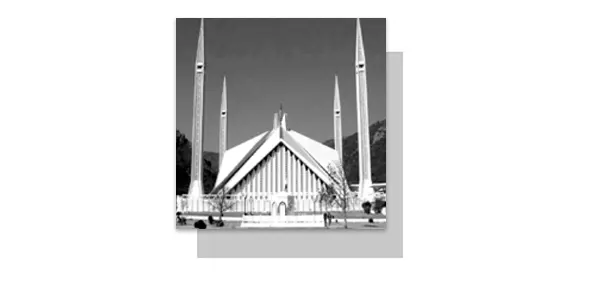“Come come, whoever you are. wanderer, worshipper, lover of leaving. It doesn’t matter. Ours is not a caravan of despair. Come even if you have broken your vows a thousand times. Come yet again, come come. —Rumi
ACCORDING to these early mystics, human love was in comparison with love for God, but a metaphor. It was as if we had to master the alphabet of human love, before we would compose the great sonnet of divine love. That all changed with the eruption of the passionate path of radical love pursued by mystics, sages, poets, and seekers. These were the luminous souls, who knew that there is, ultimately one love. This radical love is reflected in a beautiful poem in which Rumi talks about this overflowing, spilling-over love as one that mingles between God and humanity, humanity and humanity, this world and that world, now and forever :- “Look, love mingles with Lovers, See, spirit mingling with body, How long will you see life? As this and that?Good and bad? Look at how this and that are mingled.”
A love mingled and mingling in existence with echoes in eternity is for the Sufi mystics the purpose of creation. These mystics saw themselves as reaching for the same mingled and mingling radical love and luminous mercy that pours out through the Qur’an. After all, does not every chapter of the Qur’an start with a reminder of how God’s mercy, compassion, and tenderness enfolds the universe much the same way that a mother contains an unborn child? We think of love as degrees of domination and servitude, but that is not love. Rumi says, “Love is something which is complete like a moon in a clear sky, like an ocean, whose depths we cannot fathom. The garden of love is eternally green, that fears neither fall nor winter and yields fruit more than joy or sorrow. You cannot use reason and rationality to fathom the mysteries of love. Cautious men of intellect shrink from dead end, lovers’ completely carefree trample on dragons.”
Al-Ghazali emphasizes on the transcendent aspect of God. He says, “Allah is exalted beyond the limitations of space and time, but is also immanent in this patio-temporal order; His eternal wisdom and supreme beauty manifests through the wonders and glory of His creation. His eternal will is in action throughout the universe; it is in the swing of the sun and the moon and in the alternation of day and night.” Al-Ghazali’s God is not bleak and cold, but a living God. He desires intercourse with His creatures and makes it possible for them to enter into fellowship with Himself through prayer and contemplation and above all, through the gift of mystical gnosis.
Hajveri quoting Imam Ali says, when the time of prayers came he said, “The time has come to fulfil the vow that the heavens and the earth were unable to take on. When the body begins to pray the heart joins with love, the spirit reaches intimacy, the secret layer of the heart settles down in union with God.” While the path of a radical love is universally resonant, it has an unmistakable fragrance of the ascension of Prophet Muhammad (PBUH). All Muslims aspire to emulate Prophet Muhammad’s (PBUH) actions. As Prophet Muhammad (PBUH) rose to see God face to face, they too seek to see God face to face. All humanity will encounter God in the hereafter, but these mystics see the Face of God here in everything they see.” Fakar-ud-Din Iraqi says, “Whether they know Thee or not, All creatures of the world now and forever, Without end bend towards Thee. All love for someone else, but a whiff, Of Thy perfume, none else can be loved.”
The story of humanity and God is not just a story of Lord and a servant, but also as a story of Lover and Beloved. The mystics of Islamic love tradition say it not theologically, but poetically. ShamasTabrezi narrates his story, “One night, I was marched into the court of God and I proclaimed to all the angels, I bring one thing that God lacks.” The angels say what are you talking, it’s God, Lord of Heaven and earth. ShamasTabrazi says, “I insist in whose hands is my soul, I bring to this gathering something that My Lord is missing and I will divulge it only if you let me in front of my Lord.” So they let him in and when he is beholding God he says, “My Lord and my God, I bring to you the one thing that you lack and that is complete and total dependence. Now that I am here, we are complete.” God says,” I was a hidden treasure and I desired to be known, therefore I created heavens and earth, both visible and invisible so that the humanity should know me intimately.” It tells us that we are here, not as mere accidents of time, or specks of dust whirling around the universe, we are here, as a necessary part of God’s plan.
The mystics in Islamic tradition say right after the name of God in Quran, ‘Bismillahir Rahmanir Raheem,’ comes ‘Alhamdu Lillah Rabal Alameen,’ “Praise be to Lord of all Universes.” The Islamic Mystics says in order for God to be Lord of all universes, humanity is important. Not only as part of the cosmos, but also for the unfoldment of divine potential. Our heart has an immense capacity to love as Quran tells us, “Alam Nashrah Laka Sadrak,” ‘Haven’t we expanded for you your chest, O Muhammad (PBUH).” Similarly, Allah Subhanwa Tallah has expanded our hearts to go beyond our egotistic feelings and love other human beings with no selfish motives. Rumi says, “Your task is not to seek for love but merely to seek and find all the barriers within yourself that you have built against it.”—To be continued.
—The writer is author of various books based in Rawalpindi.








